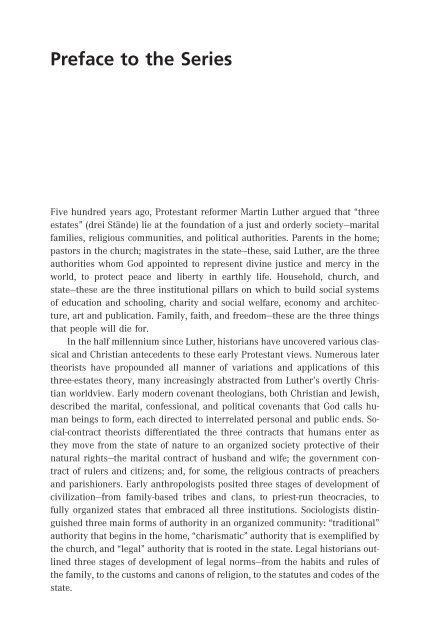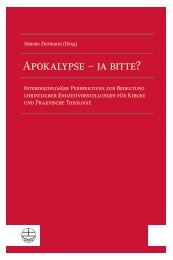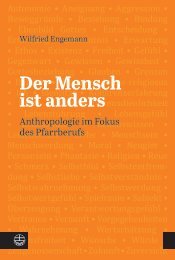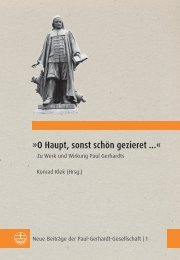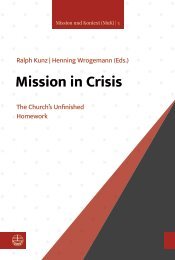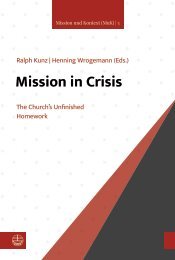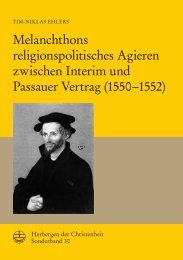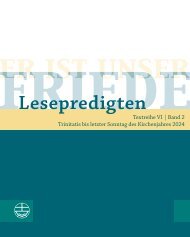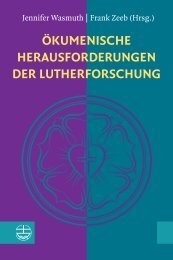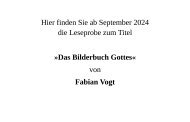Michael Welker | Eva Winkler | John Witte, Jr. | Stephen Pickard (Eds.): The Impact of Health Care (Leseprobe)
Pluralism has become the defining characteristic of many modern societies. Not only a plurality of individual and social claims and activities gain impacts on societal life. A creative pluralism of institutions and their norms profoundly shape our moral commitments and character – notably the family, the market, the media, and systems of law, religion, politics, research, education, health care, and defense. In the theoretical, empirical, and historical contributions to this volume, specialists on medicine, medical ethics, psychology, theology and health care discuss the many challenges that major transformations in their areas of expertise pose to the communication and orientation in late modern pluralistic societies. Contributors come from Germany, the USA and Australia.
Pluralism has become the defining characteristic of many modern societies. Not only a plurality of individual and social claims and activities gain impacts on societal life. A creative pluralism of institutions and their norms profoundly shape our moral commitments and character – notably the family, the market, the media, and systems of law, religion, politics, research, education, health care, and defense.
In the theoretical, empirical, and historical contributions to this volume, specialists on medicine, medical ethics, psychology, theology and health care discuss the many challenges that major transformations in their areas of expertise pose to the communication and orientation in late modern pluralistic societies. Contributors come from Germany, the USA and Australia.
Create successful ePaper yourself
Turn your PDF publications into a flip-book with our unique Google optimized e-Paper software.
Preface to the Series<br />
Five hundred years ago, Protestant reformer Martin Luther argued that “three<br />
estates” (drei Stände) lie at the foundation <strong>of</strong> ajust and orderly society—marital<br />
families, religious communities, and political authorities. Parents in the home;<br />
pastors in the church; magistrates in the state—these, said Luther, are the three<br />
authorities whom God appointed to represent divine justice and mercy in the<br />
world, to protect peace and liberty in earthly life. Household, church, and<br />
state—these are the three institutional pillars on which to build social systems<br />
<strong>of</strong> education and schooling, charity and social welfare, economy and architecture,<br />
art and publication. Family, faith, and freedom—these are the three things<br />
that people will die for.<br />
In the half millennium sinceLuther, historians have uncovered various classical<br />
and Christian antecedents to these early Protestant views. Numerous later<br />
theorists have propounded all manner <strong>of</strong> variations and applications <strong>of</strong> this<br />
three-estates theory, many increasingly abstracted from Luther’s overtly Christian<br />
worldview. Early modern covenant theologians, both Christian and Jewish,<br />
described the marital, confessional, and political covenants that God calls human<br />
beings to form, each directed to interrelated personal and public ends. Social-contract<br />
theorists differentiated the three contracts that humans enter as<br />
they move from the state <strong>of</strong> nature to an organized society protective <strong>of</strong> their<br />
natural rights—the marital contract <strong>of</strong> husband and wife; the government contract<br />
<strong>of</strong> rulers and citizens; and, for some, the religious contracts <strong>of</strong>preachers<br />
and parishioners. Early anthropologists posited three stages <strong>of</strong> development <strong>of</strong><br />
civilization—from family-based tribes and clans, to priest-run theocracies, to<br />
fully organized states that embraced all three institutions. Sociologists distinguished<br />
three main forms <strong>of</strong> authority in an organized community: “traditional”<br />
authority that begins in the home, “charismatic” authority that is exemplified by<br />
the church, and “legal” authority that is rooted in the state. Legal historians outlined<br />
three stages <strong>of</strong> development <strong>of</strong> legal norms—from the habits and rules <strong>of</strong><br />
the family, to the customs and canons <strong>of</strong> religion, to the statutes and codes <strong>of</strong> the<br />
state.


